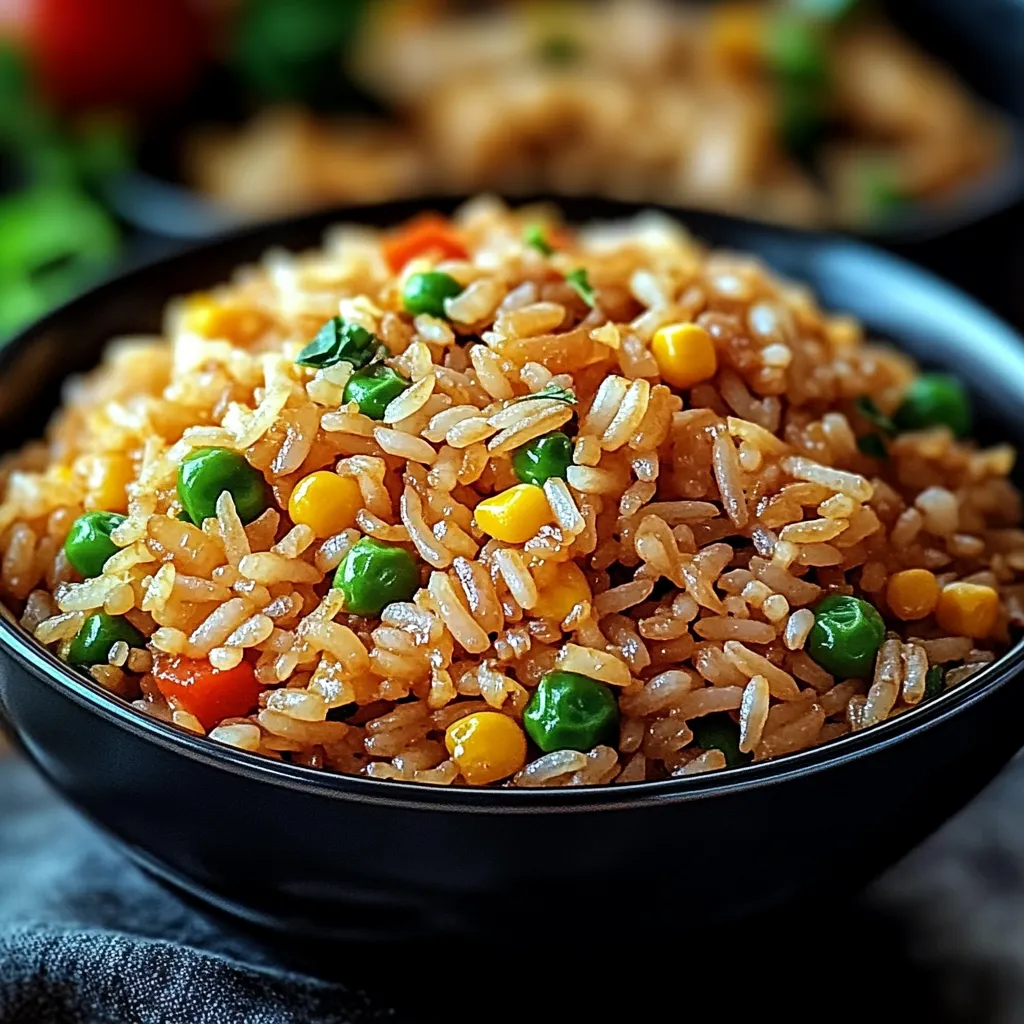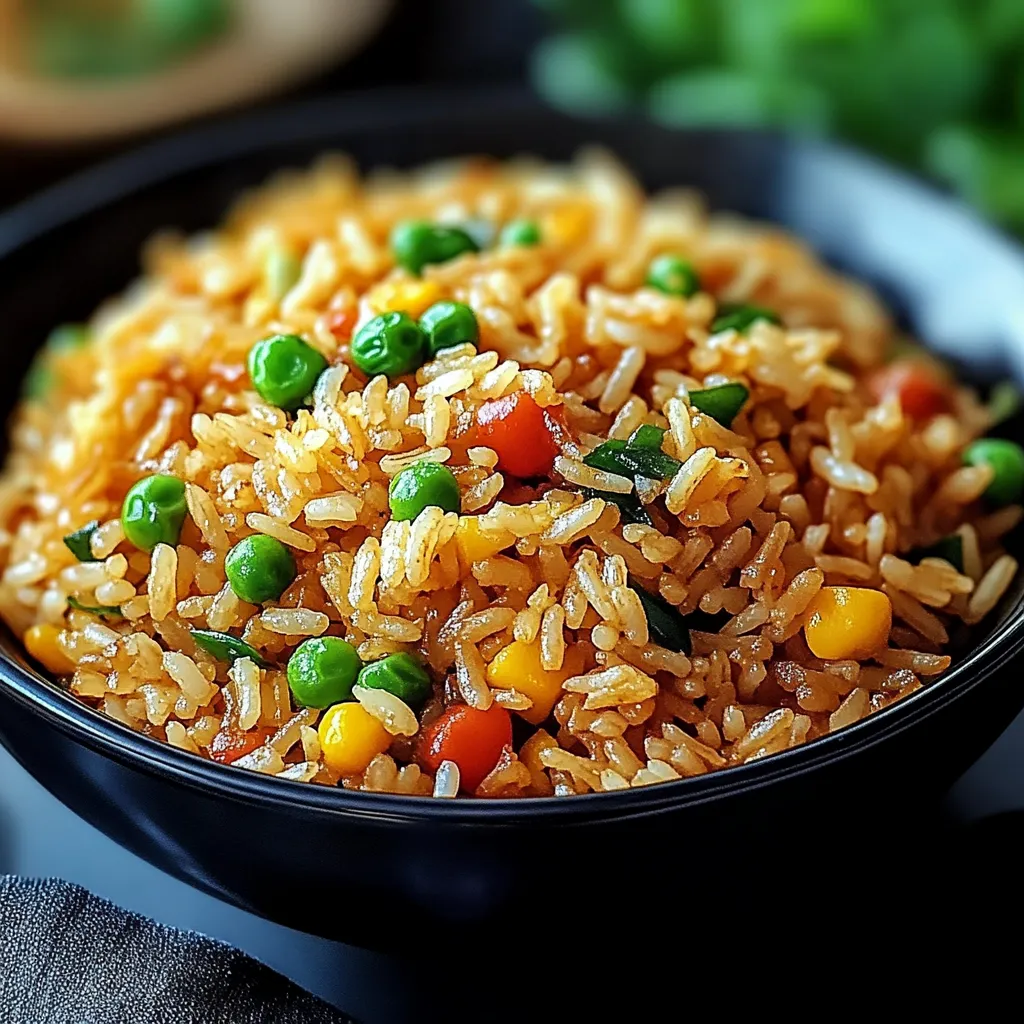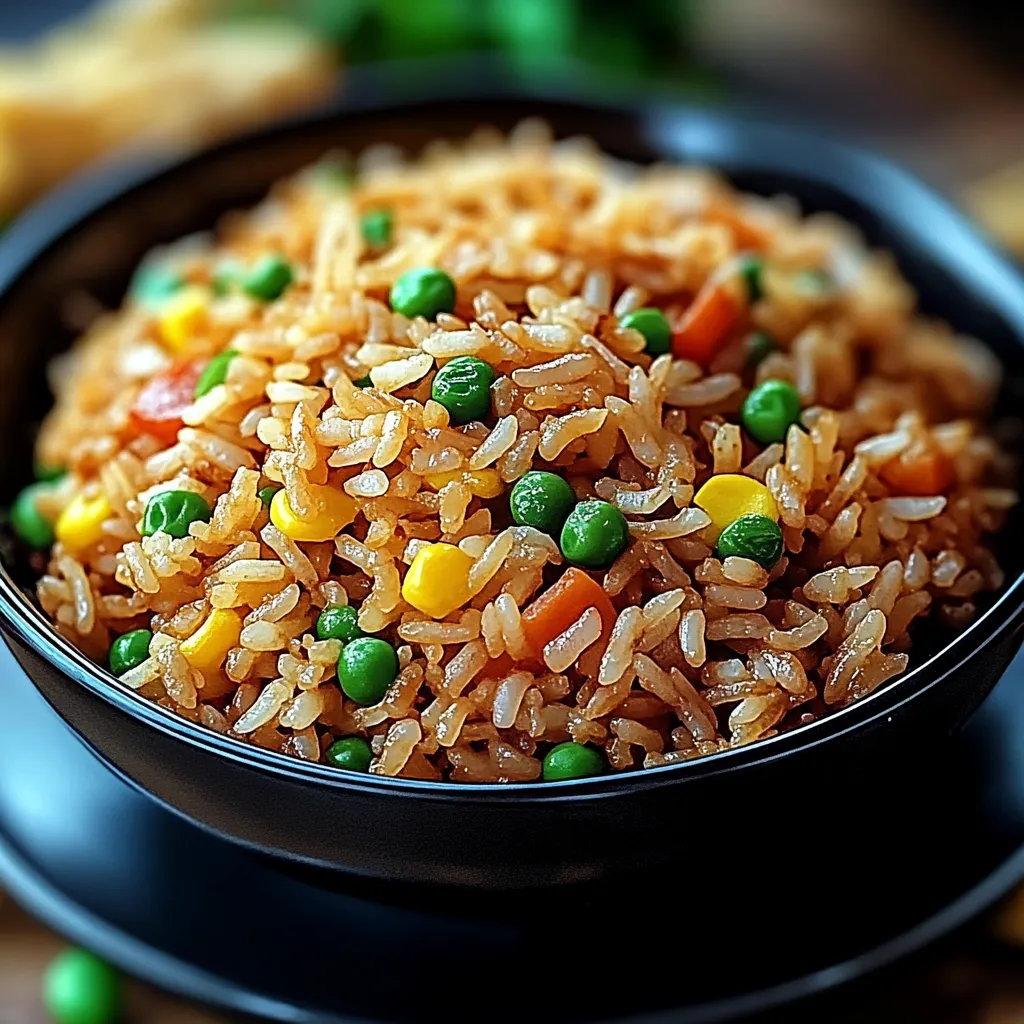 Pin it
Pin it
This filling homemade fried rice has totally changed how I handle weeknight meals. I used to grab takeout all the time, but then I found out making it myself not only cuts costs but gives me tastier, fresher results every single time. What makes this dish so great is how easy it is and how it turns basic leftover rice into something really special.
I came up with this dish during a hectic finals week when my food budget was completely gone. What started as just making do quickly turned into the number one request whenever friends stopped by. Even now, years later, it's still my favorite comfort food.
Ingredients
- Day-old white rice: Rice that's been sitting in your fridge for 1-3 days works way better because the grains stay separate instead of sticking together
- Sesame oil: This fragrant oil gives you that genuine Asian food taste you just can't get from regular oils
- Frozen peas and carrots: A quick shortcut that brings nice colors, good nutrients, and a touch of sweetness against the savory background
- Onion: Forms the flavor foundation that adds richness when it browns
- Minced garlic: The real stuff brings a punch and layers that you'll never get from powder
- Eggs: Creates tasty bits of protein throughout and makes everything a bit creamier
- Soy sauce: The key ingredient that ties everything together with its deep, savory kick
Cooking Instructions
- Warm Your Pan:
- Add sesame oil to a big skillet or wok over medium-high heat until it just starts to shimmer but isn't smoking. This usually takes around 30-60 seconds depending on your stove. Getting the right heat means your veggies will brown rather than get soggy.
- Sauté Veggies:
- Toss in your defrosted peas, carrots, onion, and fresh garlic. Keep everything moving for about 3-4 minutes until the onions turn clear and get slightly golden edges. You want the veggies to stay a bit crisp while developing some tasty browned bits that'll flavor everything else.
- Cook Your Eggs:
- Turn the heat down a touch so nothing burns, then push all veggies to one side to make room for the eggs. Pour your beaten eggs into this empty spot and let them sit for about 15 seconds before gently stirring to make soft scrambled pieces. Keep cooking until they're just set but still look a little wet, about a minute total.
- Mix in Rice and Sauce:
- Break up any lumps in your cold rice with your hands before adding to the pan. Scatter the rice over everything else, then drizzle soy sauce all across the top. Use a spatula to gently lift and mix everything instead of stirring hard, which can break up the rice too much.
- Dish Up:
- After everything's mixed well and hot throughout, about 2 more minutes, take it off the heat right away so the rice doesn't get mushy. Your finished dish should show individual rice grains, bright veggies, and nice chunks of egg all through it.
 Pin it
Pin it
What I love most about this dish is how it changes with whatever's in season. During summer, I'll throw in fresh peas instead of frozen and whatever veggies are growing in my pots. My kid, who usually runs from anything green, gobbles this rice up without any fuss, which is why it's become our Tuesday night thing.
The Magic Behind That Take-Out Feel
Getting that awesome restaurant texture comes down to using rice that's at least a day old. Fresh rice has too much water in it, so it goes mushy when you stir-fry it. When rice sits in the fridge overnight, it dries out just enough so the grains stay separate when cooked, giving you that perfect slight chew where nothing clumps together. If you suddenly want fried rice but don't have leftovers, you can spread fresh cooked rice on a baking sheet and stick it in the fridge uncovered for half an hour to dry it out quickly.
Simple Protein Add-Ins
Turn this side into a full meal by throwing in some protein. For chicken, cut up some boneless thighs and cook them first before your veggies go in. With shrimp, add them right at the end so they don't get tough. Tofu works great when you cube it and fry it separately until crispy, then mix it in last. My favorite is using leftover pork roast, which makes everything taste so much richer. Whatever protein you pick, add about 1-2 cups to keep the right balance with the rice.
Prep Ahead and Storage Ideas
This fried rice actually tastes better after it sits a bit, so it's perfect for planning ahead. Make twice as much and pack it in containers for grab-and-go lunches all week. It stays good in the fridge for up to 4 days without losing its flavor. When you want to heat it up, sprinkle a few water drops on top before microwaving it covered to bring back some moisture, or toss it in a hot pan for a minute to crisp it up again. If you need it to last longer, you can freeze portions in sealed containers for up to 3 months—just know the veggies might get a little softer after thawing.
 Pin it
Pin it
This dish shows that with just a bit of planning and some care, even something as basic as yesterday's rice can become a family favorite that everyone looks forward to.
Frequently Asked Questions
- → Why do you need day-old rice for fried rice?
Day-old rice dries out and loses its stickiness, keeping it fluffy when stir-fried. This gives the grains a restaurant-style texture instead of getting mushy.
- → Can I swap out the veggies for others?
Of course! This dish is flexible. While peas and carrots are classic, you can toss in whatever veggies you’ve got, like broccoli, corn, bell peppers, bean sprouts, or mushrooms.
- → What kind of proteins work best?
Mix it up with proteins you love. Cook up some chicken, shrimp, beef, tofu, or leftover pork. For the best result, prepare your protein first, then stir it back in at the end.
- → How can I amp up the flavor?
For a flavor punch, try adding a little oyster sauce, a few drops of fish sauce, some white pepper, or spicy sriracha. Top it off with green onions, sesame seeds, or even a drizzle of chili oil.
- → Is it okay to make it in advance?
Totally! Fried rice keeps great in the fridge for up to 3 days. For meal prep, let it cool, portion it out, and store. Reheat it later in the microwave or with a splash of water in a pan.
- → Can this dish be gluten-free?
Just switch regular soy sauce with tamari or gluten-free soy sauce. Check your other seasonings too if they come prepackaged to be safe.
